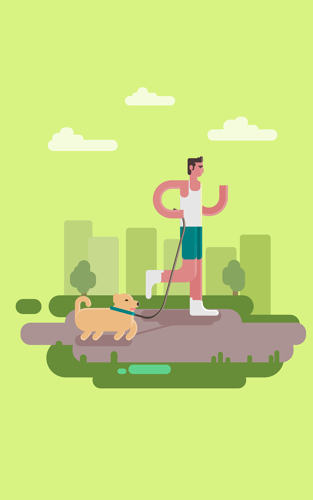
Discovering the silent language of stress in our four-legged friends is more than just a skill. It's an act of love.
Dogs, with their boundless joy and unconditional loyalty, often mask their discomfort. But beneath the enthusiastic wags and playful barks lie critical signs of stress in a dog.
This guide is your key to unlocking these hidden messages. Through understanding, you can transform your dog's silent pleas into a dialogue of care and compassion.
Are you ready to see beyond the wag? Let's go!
Excessive Yawning or Licking
Excessive yawning or licking in dogs is more than just a cute quirk. It's a window into their current state of mind. These actions are key dog behavior cues, signaling distress or anxiety.
Also, yawning might mean your furry friend is feeling nervous or stressed. Likewise, repeated licking-especially of their lips or objects around them-discomfort points.
Recognizing these signs is the first step in offering the support and reassurance your dog needs.
Shedding More Than Usual
Shedding more than usual can be alarming. It's often one of the pet anxiety symptoms that goes unnoticed. Stress can lead to this increase in shedding, making it a clear indicator of your dog's emotional state.
To confirm this, you need to keep an eye out for a sudden uptick in hair loss. Regular shedding is normal, but a significant change signals it's time for a closer look at your pet's well-being.
This isn't just about dog grooming-it's about understanding deeper dog health concerns.
Changes in Body Posture
A dog's body posture says a lot about its feelings. Stress can make a dog appear smaller, as they might:
hunch over
lower their head
tuck their tail
These changes are a form of non-verbal communication. They're sending a message that they're not feeling secure. Knowing these postures is essential in stress management for dogs.
Diarrhea or Vomiting
The digestive system is sensitive to stress, so it's no surprise that diarrhea and vomiting are common canine stress indicators. If you notice your dog having frequent accidents or vomiting without any apparent reason, it might be due to underlying stressors.
You should also keep an eye on your pet's bathroom habits as stress can them to hold their need to urinate or defecate. This can lead to bladder or bowel problems if not addressed promptly.
Extreme Whining or Barking
Excessive whining or barking is more than a nuisance-it's a cry for help. When dogs face high levels of anxiety, their vocalizations can increase dramatically. It's their way of communicating distress. This behavior can disrupt daily life and is a clear sign your dog needs assistance.
In cases where calming techniques and environmental changes aren't enough, consulting with a veterinarian is crucial. They may discuss options, including the use of medications like Trazodone for dogs, specifically designed to help manage stress-related behaviors.

Remember, each bark or whine is your dog's way of reaching out. Don't ignore it!
Recognizing the Most Critical Signs of Stress in a Dog
In identifying the critical signs of stress in a dog, we take a big step towards fostering a healthier, happier life for our beloved pets. It's not just about recognizing these signs. It's about acting on them with empathy and care.
If you've noticed any of these signs in your dog, take action immediately. Start by creating a calming environment and consider professional advice if needed. Your vigilance and care can make all the difference.
Interested in more content like this? Check out the rest of our blog now!
Here are some other articles related to your search:



Post a comment as Guest
Report
Watch this discussion.
(0) comments
We welcome your comments
Log In
Post a comment as Guest
Keep it Clean. Please avoid obscene, vulgar, lewd, racist or sexually-oriented language.
PLEASE TURN OFF YOUR CAPS LOCK.
Don't Threaten. Threats of harming another person will not be tolerated.
Be Truthful. Don't knowingly lie about anyone or anything.
Be Nice. No racism, sexism or any sort of -ism that is degrading to another person.
Be Proactive. Use the 'Report' link on each comment to let us know of abusive posts.
Share with Us. We'd love to hear eyewitness accounts, the history behind an article.